One in five U.S. adults (19 percent) who report having had COVID-19 say they have long COVID symptoms, according to a report from the U.S. Centers for Disease Control and Prevention National Center for Health Statistics.


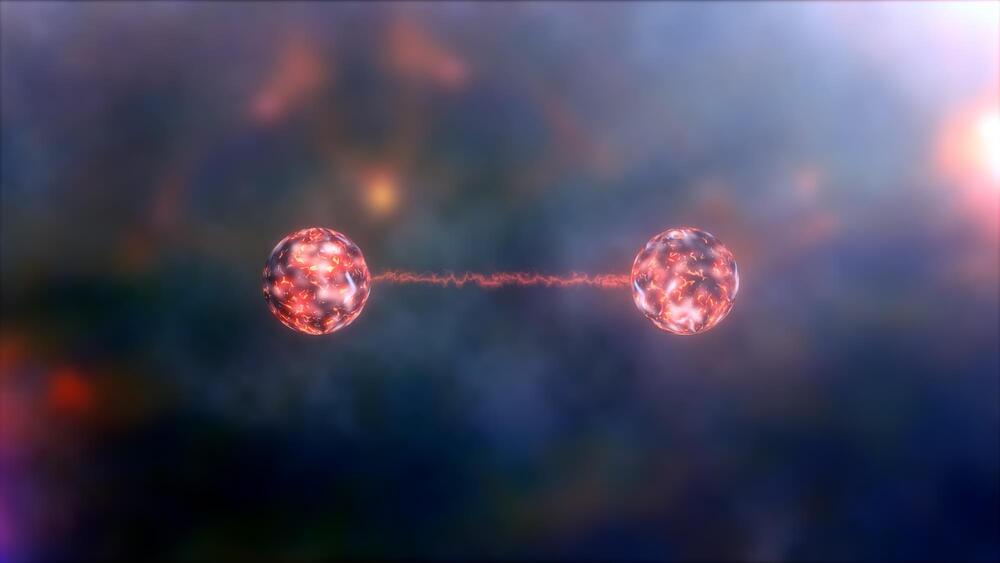
Researchers in Germany have demonstrated quantum entanglement of two atoms separated by 33 km (20.5 miles) of fiber optics. This is a record distance for this kind of communication and marks a breakthrough towards a fast and secure quantum internet.
Quantum entanglement is the uncanny phenomenon where two particles can become so inextricably linked that examining one can tell you about the state of the other. Stranger still, changing something about one particle will instantly alter its partner, no matter how far apart they are. That leads to the unsettling implication that information is being “teleported” faster than the speed of light, an idea that was too much for even Einstein, who famously described it as “spooky action at a distance.”
Despite its apparent impossibility, quantum entanglement has been consistently demonstrated in experiments for decades, with scientists taking advantage of its bizarre nature to quickly transmit data over long distances. And in the new study, researchers from Ludwig-Maximilians-University Munich (LMU) and Saarland University have now broken a distance record for quantum entanglement between two atoms over fiber optics.
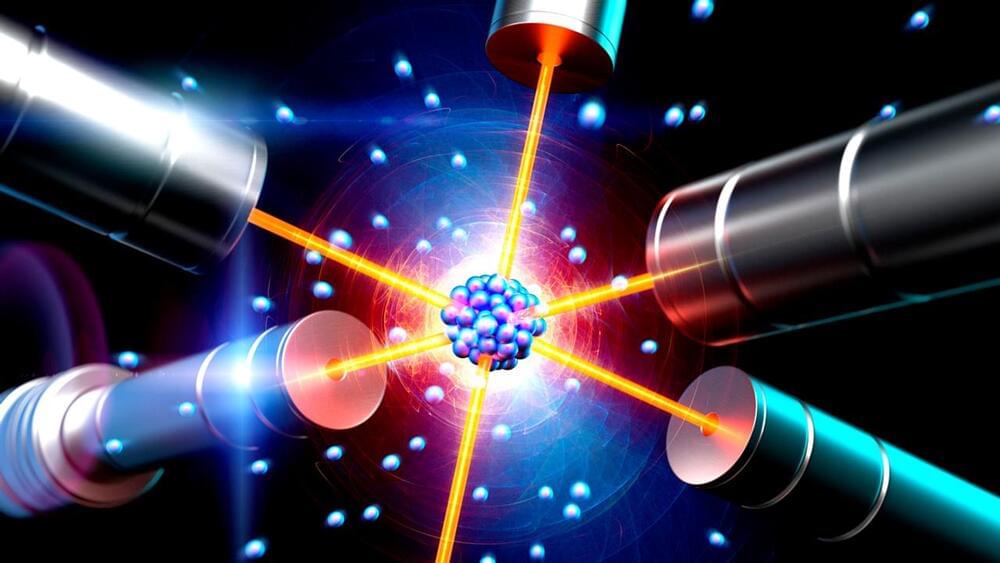
Credit: VENTRIS/Science Photo Library via Getty Images
By Amal Pushp, Affiliate Physicist at the Resonance Science Foundation
Quantum mechanics prohibits any quantum system from achieving a temperature that is equal to absolute zero. However, using Laser cooling, which is a highly efficient spectroscopic technique, atomic samples could be cooled to near absolute zero thus bringing them to their lowest achievable quantum energy state. Scientists have been advancing this technique for decades now and an important question that arose recently is whether carbon molecules, which are an integral component of life on earth, could be laser-cooled.

While we haven’t found any evidence of alien life yet, that doesn’t mean it’s not out there, beyond our reach. Now, a team of researchers has put together a mathematical model showing aliens could potentially be communicating across space – via quantum physics.
Efforts are well underway to make quantum communications a reality here on Earth. The idea is that quantum mechanics provide certain properties that would make information transfer inherently faster and more secure than regular systems… if we can get it to work.
One of the major hurdles to overcome before quantum networks can be established is that they’re very fragile and susceptible to interference. According to this latest study, such networks could fly across space without breaking up.

Quantum collaboration demonstrates in Chicagoland the first steps toward functional long-distance quantum networks over deployed telecom fiber optics, opening the door to scalable quantum computing — https://bit.ly/3QXe780
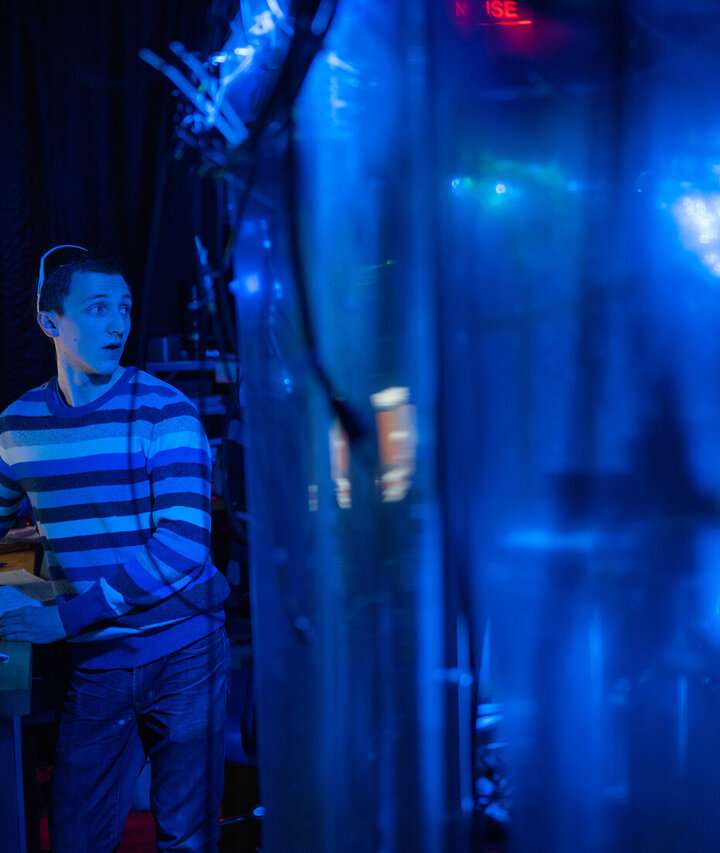
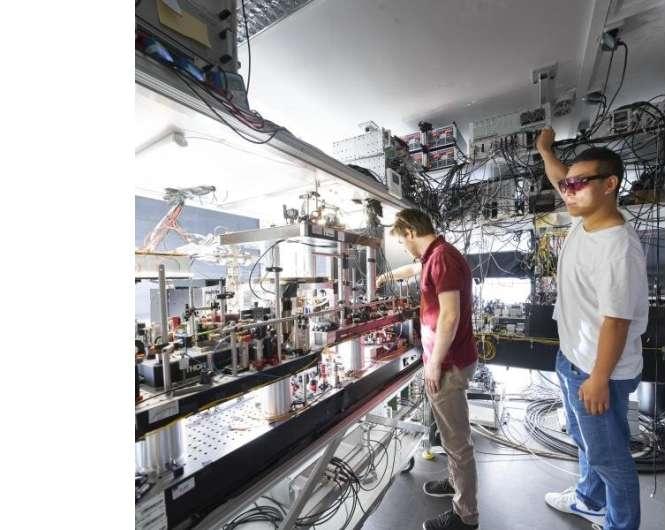
A network in which data transmission is perfectly secure against hacking? If physicists have their way, this will become reality one day with the help of the quantum mechanical phenomenon known as entanglement. For entangled particles, the rule is: If you measure the state of one of the particles, then you automatically know the state of the other. It makes no difference how far away the entangled particles are from each other. This is an ideal state of affairs for transmitting information over long distances in a way that renders eavesdropping impossible.
A team led by physicists Prof. Harald Weinfurter from LMU and Prof. Christoph Becher from Saarland University have now coupled two atomic quantum memories over a 33-kilometer-long fiber optic connection. This is the longest distance so far that anyone has ever managed entanglement via a telecom fiber.
The quantum mechanical entanglement is mediated via photons emitted by the two quantum memories. A decisive step was the researchers’ shifting of the wavelength of the emitted light particles to a value that is used for conventional telecommunications. “By doing this, we were able to significantly reduce the loss of photons and create entangled quantum memories even over long distances of fiber optic cable,” says Weinfurter.
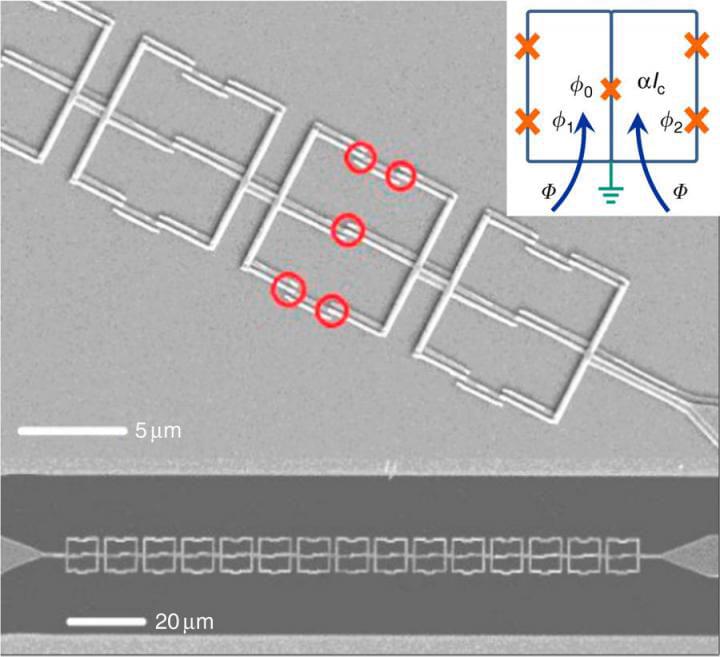
An international team consisting of Russian and German scientists has made a breakthrough in the creation of seemingly impossible materials. They have managed to create the world‘s first quantum metamaterial which can be used as a control element in superconducting electrical circuits.
Metamaterials.
Metamaterials are engineered materials that have properties not usually found in nature.

Recently, researchers have been incorporating graphene-based materials into superconducting quantum computing devices, which promise faster, more efficient computing, among other perks. Until now, however, there’s been no recorded coherence for these advanced qubits, so there’s no knowing if they’re feasible for practical quantum computing.
In a paper published today in Nature Nanotechnology, the researchers demonstrate, for the first time, a coherent qubit made from graphene and exotic materials. These materials enable the qubit to change states through voltage, much like transistors in today’s traditional computer chips — and unlike most other types of superconducting qubits. Moreover, the researchers put a number to that coherence, clocking it at 55 nanoseconds, before the qubit returns to its ground state.
The work combined expertise from co-authors William D. Oliver, a physics professor of the practice and Lincoln Laboratory Fellow whose work focuses on quantum computing systems, and Pablo Jarillo-Herrero, the Cecil and Ida Green Professor of Physics at MIT who researches innovations in graphene.

University of Chicago physicists have invented a “quantum flute” that, like the Pied Piper, can coerce particles of light to move together in a way that’s never been seen before.
Described in two studies published in Physical Review Letters and Nature Physics, the breakthrough could point the way towards realizing quantum memories or new forms of error correction in quantum computers, and observing quantum phenomena that cannot be seen in nature.
Assoc. Prof. David Schuster’s lab works on quantum bits —the quantum equivalent of a computer bit—which tap the strange properties of particles at the atomic and sub-atomic level to do things that are otherwise impossible. In this experiment, they were working with particles of light, known as photons, in the microwave spectrum.